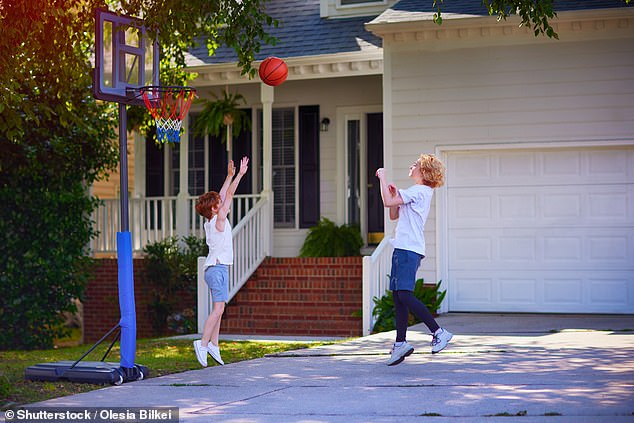If you grew up on a busy road, you’re more likely to be diagnosed with depression, anxiety, and psychotic behaviors now, a study claims.
Researchers in the UK analyzed data from more than 9,000 children who were born in the 1990s and lived in various urban, suburban, and rural areas.
The team looked at their level of exposure to pollution and traffic noise growing up, following up three times throughout their teen years and early adulthood.
They found that children who grew up surrounded by more air and noise pollution were more up to 22 percent more likely to have depression, anxiety, and ‘psychotic experiences’ like hallucinations and intrusive thoughts than those in quieter, cleaner areas.


Researchers in the UK found that children who grew up surrounded by more air and noise pollution were up to 22 percent more likely to suffer depression, anxiety, and ‘psychotic experiences’
‘Our findings suggest an important role of early-life (including prenatal) exposure to air pollution in the development of youth mental health problems,’ the researchers wrote. They also called pollution and noise exposure ‘detrimental’ to mental health.
They noted that noise pollution ‘could increase anxiety by increasing stress and disrupting sleep’ and ‘impact cognition, which could increase anxiety by impacting concentration during school years.’
They said that air pollution has also been shown to cause inflammation in the brain and damage tissues, as well as lead to low birth weight. These factors can increase the likelihood of mental health issues like depression and anxiety.
The participants included 9,065 children born between April 1, 1991, and December 31, 1992, in the southern UK.
More than 95 percent of participants were white.
The team measured pollution and noise levels that the participants experienced from pregnancy until age 12.
The researchers interviewed the children at ages 13, 18, and 24 about their psychotic experiences, which included hallucinations, delusions, and intrusive thoughts.
In total from ages 13 to 24, 19.5 percent of participants had psychotic experiences, 11.4 percent reported depression, and 9.7 percent were anxious.
In childhood, partipants exposed to high levels of air pollution were nine percent more likely to have psychotic experiences and 11 percent more likely during pregnancy. Pollution was also linked to a 10 percent increased risk of depression.
Additionally, those who lived in louder areas had a 19 percent increased risk of anxiety in childhood and 22 percent in adolescence.
One limitation is that the data is observational, so the team cannot determine if pollution and noise directly caused the mental health conditions.
And the dataset included mostly white children from affluent families, and data was limited just to children in the UK.
The participants were also only measured up to 24 years of age, so there is no data on if they developed mental health issues later in life.
‘There is now a pressing need for further longitudinal research using more precise measures of air and noise pollution and for replication using quasi-experimental designs,’ the researchers wrote.
The study was published in JAMA Network Open.
Source: Mail Online







